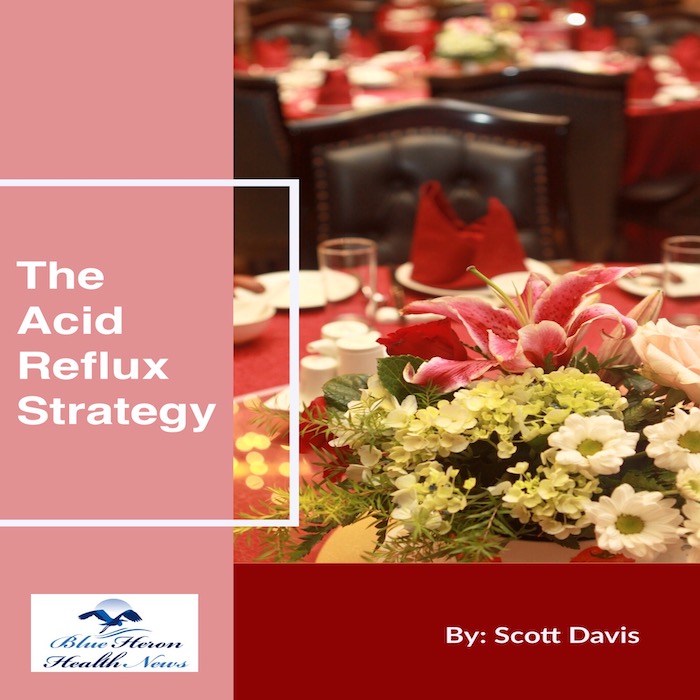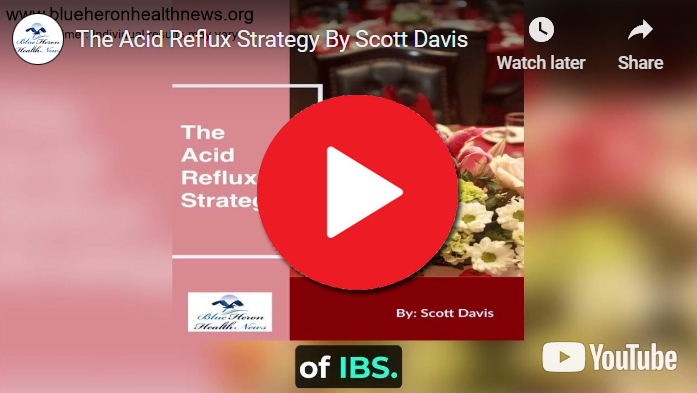
Acid Reflux Strategy™ By Scott Davis According to this eBook, you can start removing the symptoms of acid reflux and other similar problems just by making some changes in your diet, levels of stress, and lifestyle. It will guide you on how to change from the combination of food items to the sleep positions to relieve your problems. It also includes a list of food items you should focus on while shopping for it to find a natural treatment for your symptoms.
What are the complications of untreated acid reflux?
Untreated acid reflux, also known as gastroesophageal reflux disease (GERD), can lead to a range of complications. These complications arise from the chronic exposure of the esophagus and other parts of the upper gastrointestinal tract to stomach acid and digestive enzymes. Over time, this exposure can cause damage to the tissues, leading to several potentially serious conditions. Here are the primary complications associated with untreated acid reflux:
1. Esophagitis
Esophagitis is inflammation of the esophagus, which can result from repeated exposure to stomach acid. Symptoms of esophagitis include difficulty swallowing, pain with swallowing, and chest pain. If left untreated, esophagitis can lead to ulcers or erosions in the esophageal lining, which may bleed and cause pain.
2. Esophageal Ulcers
Chronic acid exposure can cause open sores or ulcers to form in the esophagus. These ulcers can bleed, leading to symptoms such as black or tarry stools, vomiting blood, or anemia from chronic blood loss. Esophageal ulcers can also cause significant pain and difficulty swallowing.
3. Esophageal Strictures
Repeated damage and healing of the esophagus from acid exposure can lead to the formation of scar tissue, resulting in esophageal strictures. Strictures are narrowings of the esophagus that can cause difficulty swallowing (dysphagia), making it hard for food and liquids to pass through. In severe cases, strictures can cause food impaction, requiring emergency medical intervention.
4. Barrett’s Esophagus
Barrett’s esophagus is a condition where the normal squamous cells lining the esophagus are replaced with glandular cells similar to those lining the intestine. This change, known as intestinal metaplasia, occurs due to chronic acid exposure and is considered a precancerous condition. People with Barrett’s esophagus have an increased risk of developing esophageal adenocarcinoma, a type of esophageal cancer. Regular monitoring through endoscopy is often recommended for individuals with this condition.
5. Esophageal Cancer
The most serious complication of untreated GERD is esophageal cancer, particularly adenocarcinoma. The risk of esophageal cancer is higher in individuals with Barrett’s esophagus. Symptoms of esophageal cancer can include difficulty swallowing, unintentional weight loss, chest pain, and persistent cough. Early detection is crucial for better treatment outcomes.
6. Respiratory Problems
Acid reflux can also affect the respiratory system. Acid can be aspirated into the lungs, causing symptoms such as chronic cough, laryngitis, and hoarseness. In some cases, acid reflux can exacerbate asthma symptoms or lead to new-onset asthma, as the acid can cause bronchoconstriction and airway irritation.
7. Dental Erosion
Chronic acid exposure can erode tooth enamel, leading to increased dental sensitivity, tooth decay, and other oral health problems. The acid from the stomach can reach the mouth, especially during nighttime reflux episodes, and contribute to dental erosion.
8. Chronic Laryngitis and Voice Changes
Reflux laryngitis occurs when acid reflux irritates the larynx, or voice box. This can lead to symptoms such as hoarseness, throat clearing, a sensation of a lump in the throat (globus sensation), and voice changes. Chronic irritation can damage the vocal cords and lead to long-term voice issues.
9. Esophageal Perforation
Although rare, severe esophagitis or ulceration can lead to esophageal perforation, a hole in the esophageal wall. This is a medical emergency that can cause severe chest pain, fever, and shock. Esophageal perforation requires immediate surgical intervention.
10. Nutritional Deficiencies
Chronic GERD can interfere with the digestion and absorption of nutrients, leading to nutritional deficiencies. This is particularly true if the condition leads to avoidance of certain foods, or if treatments such as proton pump inhibitors (PPIs) reduce stomach acid to levels that impair nutrient absorption.
11. Psychological and Social Impact
The chronic symptoms of acid reflux, such as heartburn, regurgitation, and chest pain, can significantly impact a person’s quality of life. This can lead to anxiety, depression, and social isolation, particularly if symptoms are severe and persistent.
Managing and Preventing Complications
To prevent these complications, it is important to manage acid reflux through lifestyle changes, medications, and in some cases, surgical interventions. Key management strategies include:
- Lifestyle Modifications: This includes dietary changes, weight management, avoiding lying down after meals, and elevating the head of the bed.
- Medications: Medications such as antacids, H2 receptor antagonists, and proton pump inhibitors can reduce stomach acid production and relieve symptoms.
- Regular Monitoring: For individuals with Barrett’s esophagus or severe GERD, regular endoscopic monitoring is recommended to detect any precancerous changes or complications early.
- Surgical Options: In cases where medications and lifestyle changes are not effective, surgical options like fundoplication may be considered to strengthen the LES and prevent reflux.
Untreated acid reflux can lead to a variety of serious complications, including esophagitis, esophageal ulcers, strictures, Barrett’s esophagus, esophageal cancer, respiratory issues, dental erosion, and more. Managing GERD effectively through lifestyle changes, medication, and medical monitoring is crucial to prevent these complications and maintain overall health and quality of life.
Acid Reflux Strategy™ By Scott Davis According to this eBook, you can start removing the symptoms of acid reflux and other similar problems just by making some changes in your diet, levels of stress, and lifestyle. It will guide you on how to change from the combination of food items to the sleep positions to relieve your problems. It also includes a list of food items you should focus on while shopping for it to find a natural treatment for your symptoms.
